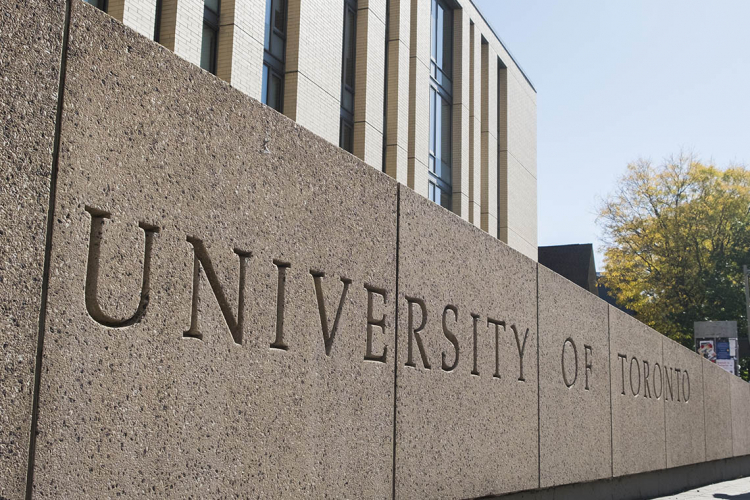University of Toronto accepts all 56 recommendations of Anti-Black Racism Task Force
The University of Toronto’s Anti-Black Racism Task Force has delivered its final report, which includes more than 50 action-oriented measures and solutions to tackle anti-Black racism and promote Black inclusion and excellence on the university’s three campuses.
The university administration has accepted all 56 recommendations.
The task force was established by the university leadership in September last year as part of its response to the global anti-Black racism protests that followed the death of George Floyd in Minneapolis, as well as incidents of systemic racism in Canada, and impassioned calls within the university community for urgent, substantive and meaningful change.
Throughout the course of the 2020-21 academic year, the 25-member task force examined existing university policies, processes and practices and considered others that would address anti-Black racism. It also reviewed correspondence received by the university on anti-Black racism during the Black Lives Matter protests and in previous years. This included demand letters, open letters, statements and petitions by faculty, staff, student and union groups.
The report provided recommendations in seven systemic areas ranging from leadership and accountability, to complaints and investigations processes. It also has recommendations specifically for students, staff, faculty and librarians.
“This is a pivotal moment for the University of Toronto,” said Professor Dexter R. Voisin, co-chair of the Anti-Black Racism Task Force and dean of the Factor-Inwentash Faculty of Social Work. “Our university is the biggest player in Canada in terms of academic prestige. That brings responsibility, as well as visibility. Other institutions are watching to see how we respond.”
Read the Anti-Black Racism Task Force’s final report
In their institutional response, U of T President Meric Gertler, Vice-President & Provost Cheryl Regehr and Vice-President, Human Resources & Equity Kelly Hannah-Moffat said they “accept and embrace all of the recommendations of the Task Force,” and that they are determined to seize the “opportunity that the Task Force has identified for us.”
The university leaders also expressed their gratitude to the students, staff, and faculty who served on the task force and its working groups, including its four co-chairs, and all the members of the U of T community who shared their experiences, insights, and expertise.
They stressed that the university community and society as a whole have the responsibility for addressing all forms of racism.
“We must not expect only Black and racialized communities to do so … In particular, we would like to thank the members of the Black community who contributed, despite the hurt and exhaustion felt by many in the wake of recent events, as well as historical injustices and lasting trauma,” they wrote in their response.
Read the university’s response to the task force’s report
The seven systemic areas addressed by the report include:
- Leadership and accountability
- Diverse governance
- Collection and use of data
- Funding structures and advancement support
- Promoting Black inclusive spaces
- Complaints and investigations processes
- Anti-Black racism training
One of the most fundamental areas is data collection, analysis and reporting. “Data collection is so important,” said Roger Bulgin, co-chair of the task force and chief administrative officer at Woodsworth College. “It is vital to substantiate – not just to tackle anti-Black racism, but also for mental health, for campus policing, and all forms of racism.”
The university has been compiling data about staff ethnicity and gender for several years through an employment equity survey. Staff engagement has risen significantly to 87.1 per cent for the most recent survey. However, the task force said that more can be done, including a dedicated communications campaign to encourage greater participation.
It also recommends stronger reporting, including an annual report “to assist divisional leaders in assessing how their diversity and particularly Black representation within their division was comparable to that of peer divisions.” There is a similar recommendation for the results of the new Student Equity Census.

The co-chairs of U of T’s Anti-Black Racism Task Force (clockwise from top left): Desma Charlemagne-Michel, Dexter Voisin, Njoki Wane and Roger Bulgin (photos supplied)
In the area of leadership, there are recommendations to appoint new senior equity, diversity and inclusion (EDI) leads in every division who will have combating anti-Black racism as a primary component of their work. There are also recommendations for the university’s governance structures, including a call for the Governing Council Secretariat to build a more diverse pool of candidates for election to governance positions.
Training features strongly as well, with recommendations for enhanced unconscious bias and anti-Black racism progressive training to be made available to all staff, faculty and librarians, including hiring committees. The task force said training should be mandatory for those in more senior and sensitive roles.
There is also a focus on reforms to complaints processes, as well as a call for better communication of university policy in this area.
It is also recommended that U of T build advancement capacity to attract donors to a Black excellence campaign.
Examples of the report’s detailed, area-specific recommendations for students:
- Reforms to admissions and student recruitment processes
- Enhanced anti-racist and inclusive pedagogies workshops
- The development of a contact database of Black alumni to engage with students
The report’s recommendations for staff include:
- The integration of EDI best practices in recruitment processes, including new language to encourage Black applicants to apply for roles at U of T
- Onboarding materials for new Black staff that raise awareness about affinity groups and mentoring programs
- New mentorship opportunities, succession strategies and pathways for Black staff
For faculty, instructors and librarians, the report’s recommendations include:
- An institutional Black Doctoral Scholars of Excellence program
- An annual lecture series to showcase Black Excellence in Research
- A focus on increasing the pipeline of Black librarians
The task force report notes that much of this work is underway. “Not everything needs to start from scratch,” said Desma Charlemagne-Michel, a co-chair of the Anti-Black Racism Task Force and director of human resources at U of T Scarborough. “Although many of the recommendations are for completion within one to two years, most of the work has already started in some capacity.”
Over the past few years, U of T has created a Black Research Network, recruited top students and researchers through newly established graduate and post-doctoral fellowships, as well as made significant investments in a hiring fund for Black and Indigenous faculty. It also created the ground-breaking Employee Equity Survey and its associated annual reports.
The university also helped organize and facilitate the National Dialogues and Action for Inclusive Higher Education and Communities, a series of national forums focused on addressing equity and inclusion in Canadian post-secondary education, and the subsequent Scarborough National Charter on Anti-Black Racism and Black Inclusion in Canadian Higher Education: Principles, Actions, and Accountabilities.
Transparency and accountability will be central to the university administration’s response to the task force’s report. That includes a new, dedicated website with updates on implementation of the task force’s recommendations. The university’s senior leadership note in their response that they anticipate being able to implement most of the Task Force’s recommendations within the timeframes suggested.
As the university’s senior leaders note, “we share the determination that no future Task Force should be needed to prompt the actions we already know are necessary.”
A virtual entrustment ceremony that marks the handing over of the task force’s final report to the president, provost, and vice-president, human resources and equity will be held on May 5, 2021, from 5:30 p.m. to 6:30 p.m.

